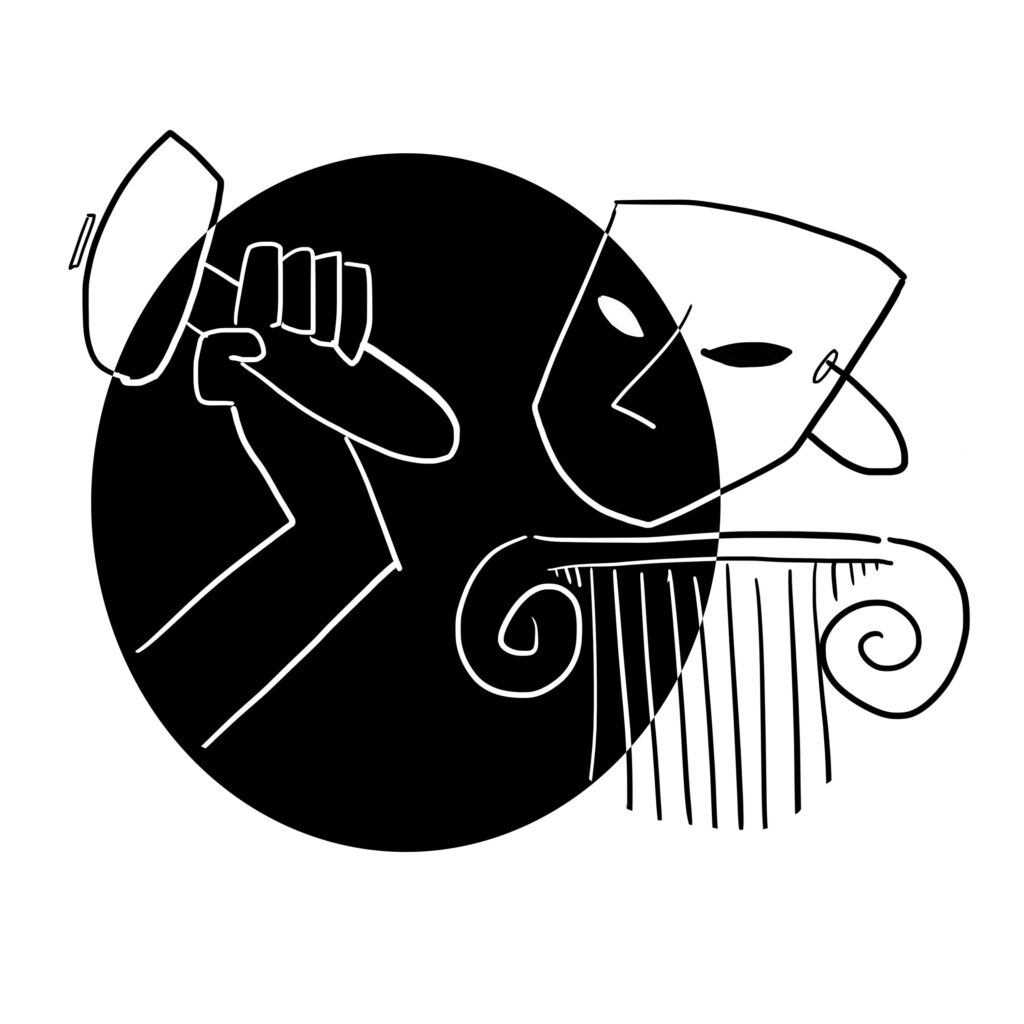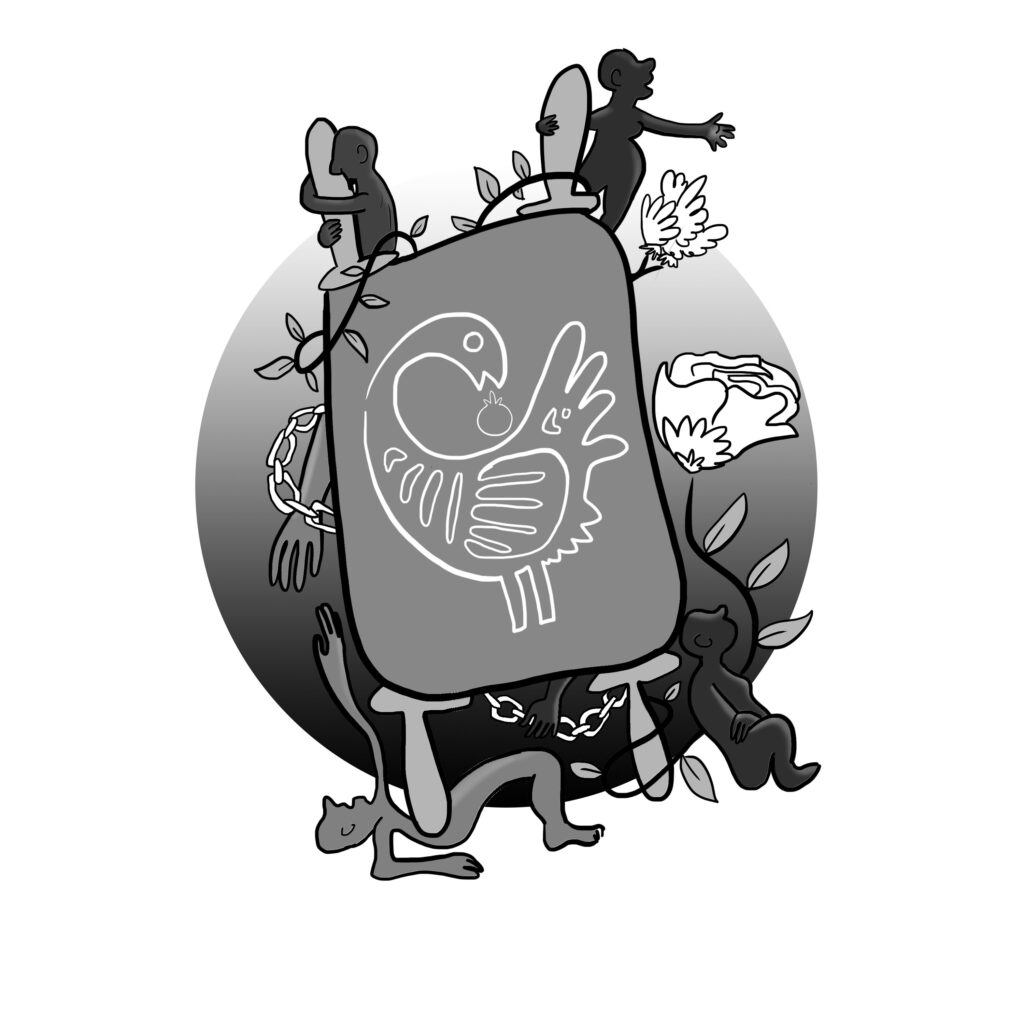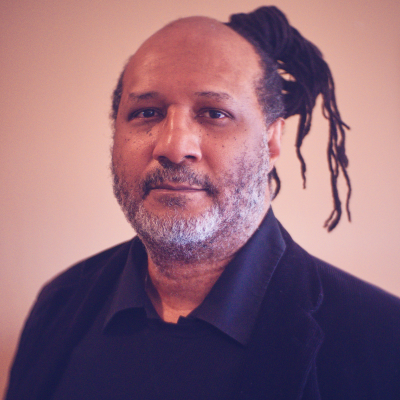The following is an excerpt from Fragments, the new magazine from Emor.
by Lewis R. Gordon
Back in 2006, Walter Isaac, a former student of mine, now an academic colleague and rabbi, wrote the following:
…a small number of black Jews have written academic expositions of their perspectives. The latter cover the spectrum from Dr. Yosef ben-Jochannan’s We the Black Jews (1996) to Lewis Gordon’s Bad Faith and Antiblack Racism (1995a).
Rabbi Isaac’s observation hit me in an unusual way. I did not realize, when I wrote Bad Faith and Antiblack Racism, that I was writing it as a Jew. I wasn’t self-consciously thinking of Jewish thought, Jewish values, and Jewish challenges. So, I did what any surprised author would do. I re-read my book.
To my surprise, Judaism was all over the place. There was a seamless flow between my reflections as a Black thinker writing on antiblack racism and other forms of oppression and my thought on what it means to struggle for freedom. For Walter, it made sense. I am, after all, a Jew, and I am Black. So, just as my thought is informed by my experiences of living as a Black man, it is also informed by those of living as a Jew, and, as I learned from my re-reading, of living the intersection of Blackness and Jewishness.
While that intersection is obviously the life of Black Jews every moment of every day, as I reflect on its significance, it resonates most powerfully at two ritual moments in the year: the seder and Yom Kippur.
During Pesach, enslavement and the quest for liberation are not for us a distanced or mythic idea. Even when we think of Shoah — which, although focused on European Jews, reverberates across the Jewish world as its aspirations were global — it’s not as a culmination but a reminder of what ongoing hatred reaps. “Never again,” for Black Jews, does not refer to a singular event.

A reflection I have been repeating in recent writings is that, wherever I go, most people think their Jews are the Jews. (For instance, in the United States, most Jews are Ashkenazi, and that’s what Americans mean by Jews, but in the Caribbean, Sephardim are often what people from various islands mean by Jews. I noticed something similar in India, and Mizrahim exemplify Jews across Northeast Africa. In a similar vein, people in various countries think of Jews differently, ranging from Polish to Ugandan to Nigerian Jews.) I’ve found the same with Blacks. Most people think their Blacks are the Blacks, although — ironically — in many majority-Black countries, I meet many people who think the Blacks are elsewhere, usually in the United States. This happens with Israeli Jews too, though I find much less often. Although Jews who travel to Israel find the cacophony of Jewishness familiar and strange, many Jews who are multi-generational Israelis have come to think that the Jews seems often to be an American or European thing — despite, of course, the important significance of the Holy Land as the only home they’ve known.
None of this is unusual if we rid ourselves of the fallacies of how we think about race and Jewishness. Neither has had a reprieve from colonialism. And as there is much confusion wrought from the construction of Israel as a colony instead of a homeland, the charge of colonialism points to the idea of Jewish Israelis as people from elsewhere, which suggests similarity to imperial centers of Europe and North America. Whatever the lived reality of Jews (of any kind) in Israel may be, that problematic expression “the Jews” contains a world of imposition that closes off who Jews can be. For Blacks, becoming the Blacks is always about being elsewhere, even when uttered by fellow Blacks. This phenomenon is melancholic, for it involves being “indigenous” to a place and time in which one is rejected — belonging, that is, to nonbelonging.
So, when reflecting on Pesach about liberation, many Black Jews are compelled to ask what follows liberation. To be liberated is to be removed from obstacles. To flee those boundaries. But then there is a rude realization. One could be liberated but not free. To be free requires more than the absence of shackles, bars, and walls. It is not only ancient Hebrew peoples who thought about this and handed down their reflections to generations who are now understood as Jews, there is sufficient insight in Jewish reflection and Black struggles to make both present in the thought of a Black Jewish philosopher of freedom.
One thing I should like to stress before I continue. As I understand Jewish thought, its ancient origins are East African and West Asian. This means, as well, that the ancestral voices that informed what I wrote nearly thirty years ago were not a separation of Africanness and Hebraic worldviews. It was the Euromodern world that transformed Africans and many other peoples from what we now call the Global South into “blacks.”1 But similarly, “Jews” as a major designation for Hebraic and Israelite peoples were part of this transition. Both were besmirched in the Iberian medieval term raza, which was the foundation of the term “race.” Both have had diversity and complexity flattened out. That is one of the reasons why one can find many elements of Jewish thought in Black thought and, when digging further, many elements of ancient African thought in Jewish thought.
Here is one example that shows up in many societies, from the realm of myth. A time of perfection once reigned, and then human beings popped up. Our emergence marked a profound imperfection in reality. (In truth, perfection and imperfection are not features of reality but, instead, human reality.) This led to two impulses with which humanity has been struggling for many millennia. Some of us wish to return to that state of supposed perfection. The problem with doing that, if it were achievable, is the resulting loss of our humanity. Others admit that, so long as we are human, there will be no time of perfection for us. Instead, we live lives of perfecting, of taking on the obligations of making things better. Jews are familiar with this effort as tikkun olam. The goal is to move forward. And still others understand that in moving forward, it’s important to look back to avoid moving in circles. This is not only an insight in Judaism — as we read Torah over and over while struggling to move forward — but in many forms of African thought. Think of the Twi word Sankofa (“to retrieve”), which among the Akan people of Ghana is elaborated in the proverb: “Se wo were fi na wosankofa a yenkyi” (“It is not taboo to go back and fetch what you forgot”). The Adinkra (symbolic representation of a proverb or saying) for this expression is a mythical bird with its feet firmly planted forward while its head is turned backward to retrieve an egg on its back.
What, however, is wrong from the standpoint of Judaism in attempting to “return” to perfection? Here, we hit at a core concern of Judaism: the rejection of idolatry. In this respect, Judaism constantly reminds humanity of the dangers of attempting to become gods or, worse, God.
Trying to be God is offensive in Judaism for a variety of reasons. For one, it violates monotheism — unless, of course, one replaces God. For another, God isn’t finite. We are. Thus, at the heart of idolatry, at least when projected onto oneself, is that one destroys humanity. If humanity is an expression of God’s love, of what is born from being thrown out of the monotony of being material things, then idolatry also harbors misanthropy: the hatred of humanity. It violates the essential beauty of what makes us human. Third, perfection — in effect, completeness — closes off possibilities. Human reality is living possibility. Openness, then, is a core feature of human existence.
In Judaism, openness is expressed in ethical life. It involves not only taking responsibility for the lives we live. It also involves taking up the responsibility for responsibility itself as a virtue. In other words, if ethical life is a responsibility, we take responsibility for it. For religious Jews (of any movement), this takes the form of literally carrying the Torah and committing oneself to live by it. But for many non-religious Jews, this ethical imperative is still there. It takes the form of ethical action as a struggle for liberation and freedom so profound that they refuse, paradoxically, to fetishize or make an idol even of Torah. I write “paradoxically” because, in doing so, they are ironically practicing fidelity to the spirit of Torah. This paradox is richly debated throughout the history of Hebraism and will no doubt continue for time to come. That, too, is ironically Jewish.

So I come to the atonement part. To get there, we should understand an important challenge of freedom. Take, for example, the Genesis story of the first human beings. Could they properly be called human if they had not been placed in the awkward situation of an injunction against eating from the fruit of the tree of knowledge? Think about it. At the moment that injunction was posed, those creatures realized they have the power to disobey or obey God. Even if they obeyed, they could have disobeyed and still could disobey. This possibility makes human beings stand out — it gives us our existence. It’s the realization of the importance of choice and the responsibilities of ethical life.
As the story goes, however, there is a price. The couple were, after all, thrown out. Psychoanalysts and existentialists have had much to say on the status of this movement from a perfect place to a very imperfect one. It speaks to humanity, which we could call a reality in search of a home, a place of belonging. But what is this belonging? What is it but the challenge, perhaps the existential paradox, of how to grow and live through a form of belonging that is not exclusive?
Atonement knocks at the door. For what must we — whether as Jews or simply humanity — atone? Unfortunately, a lot. But atonement in and of itself is not enough. Jewish people are diverse, and we carry a burden that is in truth shared among all humankind. It is that responsibility for responsibility born from a rejection of idolatry.
Yet, as we know, another problem with idolatry is that it is seductive. Many people are drawn to the promises idolatry offers, and Jews are no exception. There are many idols in our world; one of particular relevance here is the idol of whiteness, and with it the harm wrought from an appeal to a form of purity that excludes others from the fold of human possibility. The psychiatrist and philosopher Frantz Fanon wrote about this under the title Black Skin, White Masks. Lies of colonialism and racism entomb human beings into lies in which one group is sealed in their skin (for example, blackness) and another wears a mask that offers them a preferred and deluded sense of self as ideal or godlike (whiteness). One is an abject seduction; the other, a self-serving malignant narcissism. Both are misanthropic; they attempt, in Fanon’s words, the “murder” of humanity. Here the challenge of freedom is to unmask the lie, unseal the skin.
So, we come to a concluding reflection. Liberation from raises the question of what liberation should also be for. Throughout Black and Jewish thought, there is the search for a proverbial home. The mistake is to think of home as a place or a thing. Home can be an ongoing practice of belonging, and by that I mean a series of relationships with others in which we are able to live a livable life of worthwhile possibilities together. It is the building of ethical life with one another in a practice that we can call love. This love is not a self-serving love or practice of malignant narcissism in which others cannot be more than imitations of the self. It is a radical form of love in which one ceases to take oneself too seriously, which in turn opens the possibility of relationships with others, including political ones, as possibilities and potentials of belonging. This community-oriented freedom is non-idolatrous and requires a commitment to what is always greater than the self. It is that understanding that serves, beautifully, as what it means to live in a free society. This commitment involves becoming an ancestor for those whom one will ultimately never know. But their anonymity makes all the more poignant the non-idolatrous quality of love that is also, at its heart, Mitzvot.
1 Here written with a lower case because it is referring to the imposed diminutive use. See the author’s Fear of Black Consciousness (NY: Picador, 2023).

Lewis R. Gordon is Professor and Head of the Department of Philosophy at UCONN-Storrs, where he also has an appointment in Judaic Studies and Global Affairs. He is the author of many books, including, most recently, Freedom, Justice, and Decolonization (Routledge, 2021) and Fear of Black Consciousness (Farrar, Straus and Giroux, 2022). He is the 2022 recipient of the Eminent Scholar Award from the Global Development Studies division of the International Studies Association.
